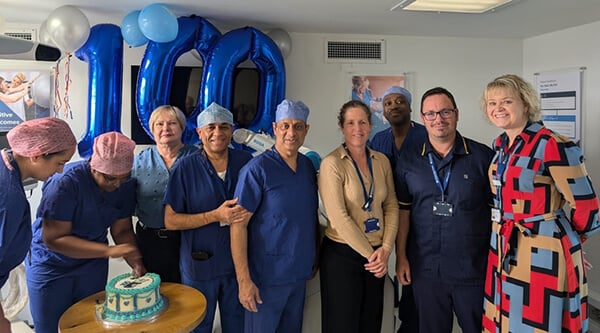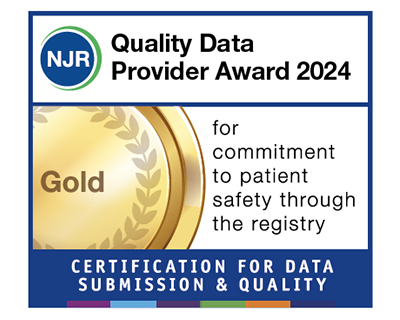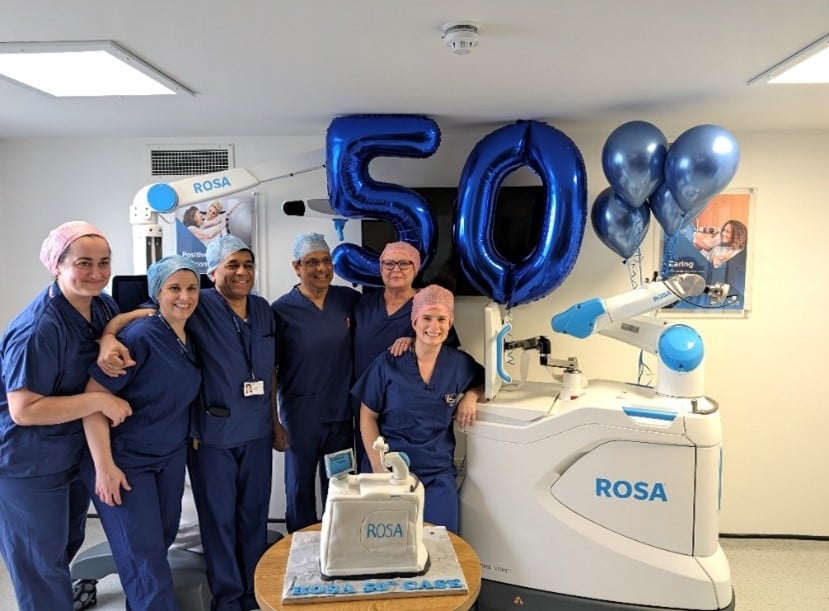A hernia is a bulge or swelling that happens as an inner body part pokes through a weak area of muscle or tissue wall. Hernia repair surgery is the world’s most common surgical procedure and also the most common treatment for a hernia.
A hernia operation can be performed by either open surgery or keyhole surgery, which is minimally invasive. The surgery can help to relieve pain, return the hernia abdominal organs to their correct place and, strengthen the weak muscle area.
What is hernia surgery?
A hernia means something coming through. It most frequently occurs when an organ or internal tissue pokes through a hole or weakness in your abdominal muscle wall. Most hernias form in your abdomen area or groin. Hernia surgery allows your surgeon to correct the hernia by pushing the organ and protruting tissue back in place.
Types of hernia surgery
- Open hernia surgery - In an open hernia repair, the surgeon makes an incision near the hernia. pushes the protruding tissue back into place, and reinforces the weakened area to prevent recurrence.
- Minimally invasive (laparoscopic) hernia surgery - A minimally invasive surgical technique to repair a hernia. Instead of the surgeon making a large incision which happens during open surgery, the surgeon uses small incisions to perform the hernia repair. Keyhole surgery typically results in less pain, a faster recovery and smaller scars.
Who needs a hernia repair?
You get a hernia when tissue or an organ, such as your intestine, pushes or bulges through a weak spot in your muscle wall. This bulging tissue creates a lump that tends to be painful or uncomfortable when you cough or strain.
Surgery is the most common treatment for a hernia, although not all hernias require immediate treatment, they usually do result in treatment as they worsen over time.
How do I prepare for hernia surgery?
If hernia repair surgery is recommended, your surgeon will advise on the most appropriate type of surgery based on the location and severity of your hernia. If they do advise hernia surgery is for you, click here to find out more information about how to prepare for your surgery.
What does hernia surgery involve?
• Open surgery – under local or general anaesthetic, an incision usually around 2.5 to 3 inches is made to your skin near your hernia and your surgeon will push your hernia back into your abdomen. The incision is then either stitched closed or much more commonly a mesh is placed over the hole and fixed using fine stitches. The mesh acts like a scaffold and your own tissue will grow through the mesh to reinforce the weakened area without putting tension on the surrounding tissues.
• Keyhole (laparoscopic) surgery – under general anaesthetic, several smaller incisions are made to allow your surgeon to use a less invasive technique using various special instruments including a tiny telescopic camera to repair your hernia. A mesh may then be used to strengthen your abdominal wall.
How long does a hernia operation take?
A hernia operation typically takes one to two hours. It depends on the type and location of the hernia, the surgical approach used (open surgery or laparoscopic), and the patient’s overall health.
Laparoscopic hernia repairs are generally quicker than open hernia surgery. A laparoscopic hernia repair usually takes around 30 to 60 minutes whereas an open incisional hernia repair can take 90 minutes to 3 hours.
Is hernia repair painful?
Hernia surgery will be performed either under local or general anaesthetic, if under general anaesthetic you won't feel anything as you will be asleep. Under local anaesthetic you may feel some slight discomfort.
If you are feeling in pain following surgery, you may be advised to take some pain relief medication to help ease the pain during the recovery process.
Benefits of hernia repair
Surgery is the only way of permanently treating a hernia. The sooner you get it fixed, the easier the surgery and the quicker you will heal.
By repairing the hernia, you rule out the possibility of developing any complications, including those severe, life-threatening conditions. Find out more about benefits of a hernia repair here.
Hernia surgery risks
Hernia surgery is a routine procedure, but as with all surgeries there are risks of complications. These may vary depending upon the exact hernia operation you have and your health. Your surgeon will discuss these with you in detail.
Often the greatest complication risk is a reoccurrence of the hernia. Other hernia surgery side effects include: build-up of seroma or a fluid-filled sac under the surface of the skin, inability or difficulty urinating, organ or tissue damage, wound infection and, rejection of the mesh.
How long does hernia surgery recovery take?
Recovery time from hernia surgery depends on the type of surgery, your health, and your hernia's location.
General recovery guidelines are:
- Minimally invasive (laparoscopic) hernia surgery – you can expect to return to normal activities within a week or two. It may take six weeks before you can do any heavy lifting.
- Open hernia surgery - usually requires longer to recover, taking around four to six weeks before resuming normal activities, and six to eight weeks before heavy lifting.
You should follow your doctor’s instructions following hernia surgery.
How much does hernia surgery cost?
If you decide to pay for your treatment, Ramsay offer an all-inclusive Total Care package, where a single one-off payment at a pre-agreed price, delivering direct access to all the treatment you need for complete reassurance. You can also spread the cost of your treatment with finance options available.
Hernia surgery may be covered by your medical insurance policy. We advise you to check directly with your insurance provider and get written confirmation before commencing treatment.
Find out more information around how you can access private treatment with us here.


